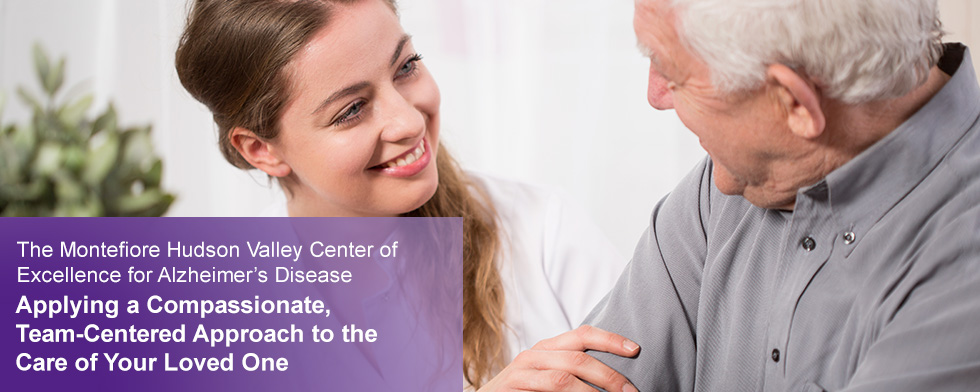Resources for Patients and Caregivers
Alzheimer’s disease affects a person’s ability to remember things and can affect language and problem-solving skills. It often begins slowly and can be difficult to detect at the beginning. Some people may blame their forgetfulness on just getting older; over time, however, their memory problems worsen and interfere with their ability to take care of themselves.
Pay attention to these warning signs:
- Memory loss that disrupts daily activities
- Challenges with planning or solving problems
- Confusion with time and place
- Withdrawal from work or other social activities
- Changes in mood or personality
- Difficulty with speech or writing
If you or someone you know thinks your forgetfulness is getting in the way of your daily routine, or if you are worried about your memory and whether it is “normal aging,” talk to your doctor. Many primary care doctors know how to perform simple, but effective, tests of your memory. They may also be able to determine if your problems are the result of medical issues, the medicines you take or because you are depressed or feeling exceptionally anxious.
If your doctor thinks you should have a more intensive examination, you may be referred to the Montefiore Center for the Aging Brain or one of the doctors who work with the Montefiore Center of Excellence for Alzheimer’s Disease.
Click here to read an article by Dr. Jessica Zwerling, the director of the Montefiore CEAD, about paying attention to early warning signs.
For more information on Alzheimer’s Disease and community resources and services for patients and caregivers, check these websites:
Alzheimer’s Association
The Alzheimer’s Association offers a 24/7 Helpline with information and advice, hosts face-to-face support groups and educational sessions and provides an online message board to connect with others and assist with finding available clinical studies. Learn more.
Alzheimer’s Foundation of America (AFA)
The Alzheimer’s Foundation of America (AFA) provides educational, social, emotional and practical needs of individuals with Alzheimer’s Disease and related illnesses and their caregivers and families. The Foundation provides a toll-free helpline, educational materials, conferences and workshops for caregivers. Learn more.
CaringKind
CaringKind supports individuals and families affected by dementia. There is a Helpline; individual and family counseling sessions with licensed social workers; support groups and education programs; early-stage services and a wanderer’s safety program. Learn more.
Lewy Body Dementia Association
The Lewy Body Dementia Association offers information and programs and support services for individuals diagnosed with this form of dementia and their caregivers and families. Learn more.
National Institute on Aging
The National Institute on Aging website has a fact sheet about Alzheimer’s Disease and other information about the causes, signs, symptoms and treatment of Alzheimer’s and other dementias. Learn more
New York State Department of Health
The NY State Department of Health website has information about Alzheimer’s and other dementias. Learn more.

